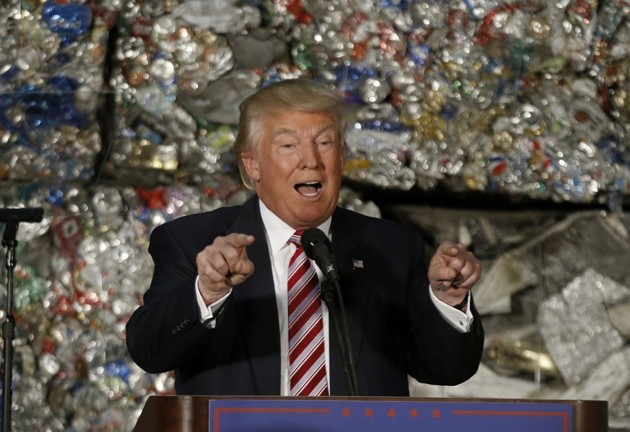(Editor’s note: Alana Semuels joined the TAD discussion group of Atlantic readers for an “Ask Me Anything,” and a lightly edited version of that Q&A is below. Reader questions are in bold, followed by replies from Semuels.)
Hi Alana. Welcome to TAD and thank you for being here. I live in the heart of the Rust Belt—Pittsburgh—and I was wondering what you see as the best hope for river towns like Aliquippa and Beaver Falls that were founded on steel but now barely scrape by. We are losing young people at a rate of 30 percent, I think. A couple towns have found a niche and have become viable, but I just don’t see many of these places recovering. Do you think they will inevitably eventually disappear like so many other towns in the Midwest?
I started my journalism career in Pittsburgh, at the Post-Gazette, so I have a special alliance to the region (except to the Steelers. Go Pats!). There are towns—like Goshen, Indiana—that have survived the rural exodus, mostly by specializing in a few niche industries. My article “America Is Still Making Things” talks a little more about this. But only a few towns are going to be able to pull this off. I think the rest are going to keep losing population and young people. There’s hope for them to become retirement communities, but that’s not necessarily the most dynamic economic engine.
As someone who really went around and talked to a lot of people from all corners of America, did you think Trump might win the election? Or were you as surprised as the rest of us?
No, I was surprised, too. I wish I had talked to more people about this before the election, but I, like many other journalists, was focused on other things.
What do you think is the biggest misconception people have about the average Trump voter?
Democrats seem to think Trump voters are dumb; they aren’t. They just really don’t like Democrats, especially Hillary. A lot of the people I talked to said they were more anti-Hillary than they were pro-Trump. A friend who is a pollster said people in his groups thought Hillary was a liar and Trump an a-hole, and they’d rather vote for an a-hole than a liar.
I think a lot of people were long-time Republicans, and are as unlikely to change parties as urban Democrats are. But there was one woman who said to me she didn’t know who she was voting for until she got into the voting booth, and then she thought about the FBI and Hillary, and then voted for Trump. I think she is fairly representative.
It irritates me when Democrats criticize Rust Belt voters for supporting Trump. That’s the point of voting—everyone gets to choose who they want. Alexander Hamilton would have liked only the educated people to choose who was in charge, but that’s not a democracy.
Do you think sexism was a big factor in Midwest voters’ hate for Hillary?
No, I actually don’t. But I’m a business reporter, not a politics reporter, so I could be wrong.

What is the most surprising thing you learned while researching “America’s Great Divergence”?
Well the most surprising thing was when I was sitting at a pizza parlor talking to two young guys who said some really racist stuff (they didn’t like cities because they had too many black people, etc), which they knew was on the record. I think it really illuminated for me how different the two worlds are: What they were saying was perfectly fine to say in the world they lived in. In the world I live in, it was shocking.
Where is somewhere you’ve traveled that has really surprised you and changed how you think, either in a good way or a bad way?
Beaumont, Texas, was a fascinating place for me to visit. I had written a lot about segregation at that point, but it is often hard to articulate why segregation is so problematic (beyond general issues of equality and fairness). But I talked to a mother whose daughter had been succeeding in a good school in a white neighborhood, and then had to move to a bad school in a poor neighborhood. In the first school, her daughter had access to a computer, books, and an engaged teacher. In the second one, many of the kids in her class didn’t know how to read.
Based on what you’ve seen of America, do you consider it likely or unlikely that large-scale violent conflict breaks out between factions of Americans?
Hmm, I don’t think widespread violence is likely. One interesting thing I’ve noticed in trips since the election is how everyone is just going about their daily lives as before. Guys, the world has not ended (!!). If anything, people seem more politically engaged than ever.
One of the things I was most curious about after the election was who was going to be impacted first and soonest (apparently, the answer was immigrants from seven countries). But people live locally, and act locally, and will see little changed in their lives for now, I think.
What do you think is the limit at which Trump’s support among rural voters collapses, if there even is one?
I have thought about this a lot, and I think that the limit is a lot higher than Democrats would hope. I was in rural North Carolina last week talking to voters, and I was surprised how many of them—poor, rich, white, black—said they thought Trump was doing a good job. (This was in the midst of the immigration furor.) They said they thought he had a big mouth, and said things that he shouldn’t, but they wanted to give him a shot to turn the country around.

I enjoyed your story “President Trump, Job Creator?” Do you think that Trump either knows or cares that companies are playing him by letting him claim credit for things that they were going to do anyway?
I think he loves this. Announcements like Intel’s recent one about the chip factory in Arizona make him look good, even though he did nothing to make them happen. Intel, like most companies that make these announcements, had planned to do this long ago. By announcing it Trump’s way, though, they might be able to curry favor with him. I don’t think they’re playing him; I think he’s playing them.
What do you think will be the long-term ramifications of Trump’s economic policies? Do you think these ramifications could have a major impact on how rural areas vote, or do you think values and religious concerns will still be supreme?



